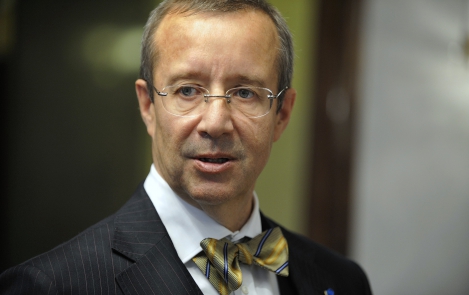-
Reset
+


President Toomas Hendrik Ilves’s statement
31.05.2012
The sentiments that we have heard in the past weeks from Estonia's leading politicians on issues ranging from extensive wire-tapping to other violations of the law stretch the limits of both credibility and good taste. This undermines citizens' trust in the state's democratic foundations.
It is an attempt to divert attention from the essence of the core question. The narrow interests of political parties have been raised above the responsibility for all statements that comes with the status of being a member of parliament or government minister.
I am concerned that there is the possibility that this process could corrode the credibility of nonpartisan investigative and surveillance agencies, and that the people's belief in the possibility of honest governance may have been undermined.
The accuracy of assertions regarding offences are investigated by the Police, the Prosecutor's Office and the Security Police within the limits of their competence. If necessary, they shall press charges and bring the matter to court.
I call upon all politicians, journalists, representatives of civil society, and opinion leaders to tame their emotions and to remain within the limits of a civilised exchange of ideas.
Instead of mutual accusations and political point scoring, parties and their representatives should instead be dealing with restoring their own credibility.
During the course of the last eighteen months a disturbingly large amount of shady cases concerning the funding of political parties have become public. The authorities of other countries have been asked to provide funds for election campaigns. Estonian residence permits have been traded. Money from unknown sources has been donated into party treasuries.
The public have the right to ask questions and to request – in addition to answers – the better monitoring of political parties, and changes to the rules regulating their financing.
The fact that the parliamentary parties have suspended the provision of legal status to the controversial "world-view foundations" and their financing from the state budget, gives hope that Estonian political parties have retained the ability to comprehend society's well-grounded discontent.
I hope that this expresses recognition on behalf of the parliamentary parties that requesting extra financing from the state budget would not be appropriate until the volume of previous financing and its use has become transparent and clear to the public.



